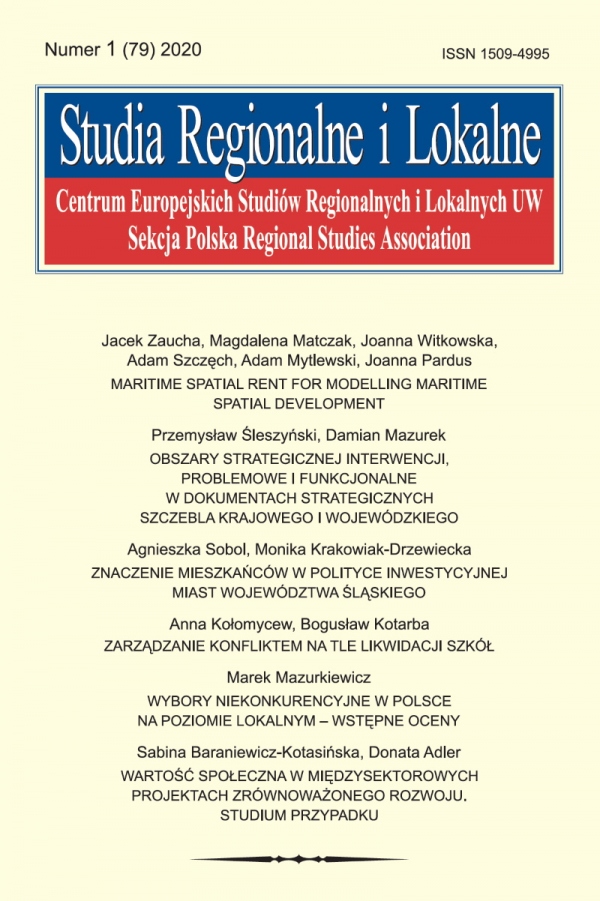Issue:
1(79)/2020
Anna Kołomycew, Bogusław Kotarba
Conflict management and closing down of schools
DOI: 10.7366/1509499517904
Zarządzanie konfliktem na tle likwidacji szkół
Wysokie koszty realizacji zadań oświatowych wynikające ze zmniejszającej się liczby uczniów, a także niekorzystne prognozy demograficzne zmuszają władze gmin do podejmowania działań oszczędnościowych, w tym likwidacji szkół. Decyzje te są niepopularne społecznie i wywołują konflikty pomiędzy interesariuszami lokalnej polityki oświatowej. Celem artykułu jest przedstawienie podejmowanych przez władze gmin działań mających ograniczać negatywne skutki konfliktów związanych z likwidacją szkół, mimo że osłabiają one efektywność finansową samego procesu likwidacji. Artykuł powstał na podstawie analizy literatury przedmiotu, a także wyników badań empirycznych prowadzonych przez autorów. Ramy teoretyczne wyznaczają wybrane koncepcje zarządzania konfliktem oraz model polarity management.
Conflict management and closing down of schools
The rising costs of educational tasks due to the decreasing number of students force municipal authorities to take cost-saving measures, including the most radical form, that is closing down schools. Such decisions are not popular with the local residents and in all the examined municipalities have caused conflicts between the stakeholders of local educational policy. The aim of the article is to present actions taken by municipal authorities to reduce the negative effects of conflicts arising in connection with the liquidation of schools. The authors focus on the activities of municipal authorities to curb the negative consequences of the conflict, but turn out to be financially ineffective. The article was based on the analysis of the subject literature, as well as the results of empirical research conducted by the authors. The theoretical framework draws on selected concepts of conflict management and the polarity management model.
Affiliation:
Anna Kołomycew: Uniwersytet Rzeszowski, Instytut Nauk o Polityce, al. Mjr. W. Kopisto 2a, 35-959 Rzeszów; ORCID: 0000-0003-2105-2953;
anna.kolomycew@ur.edu.pl Bogusław Kotarba: Uniwersytet Rzeszowski, Instytut Nauk o Polityce, al. Mjr. W. Kopisto 2a, 35-959 Rzeszów; ORCID: 0000-0002-4466-762X;
boguslaw.kotarba@ur.edu.pl 


